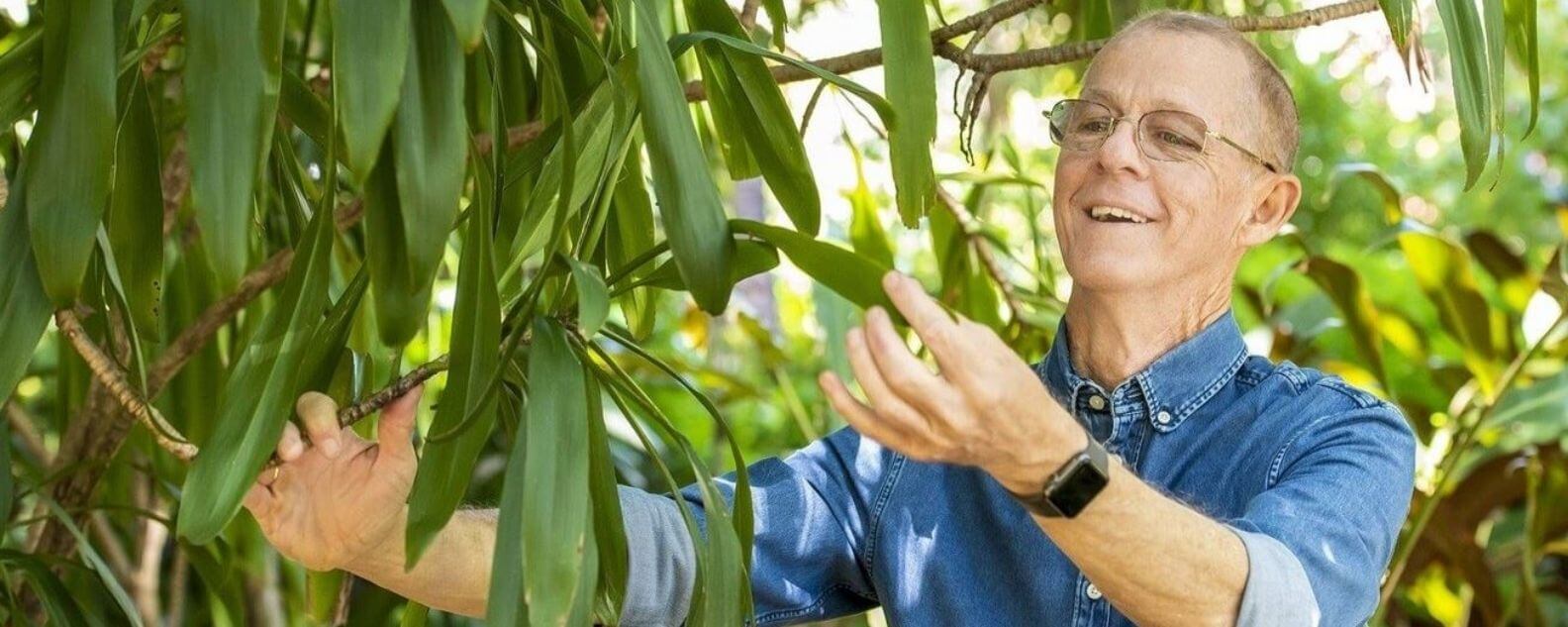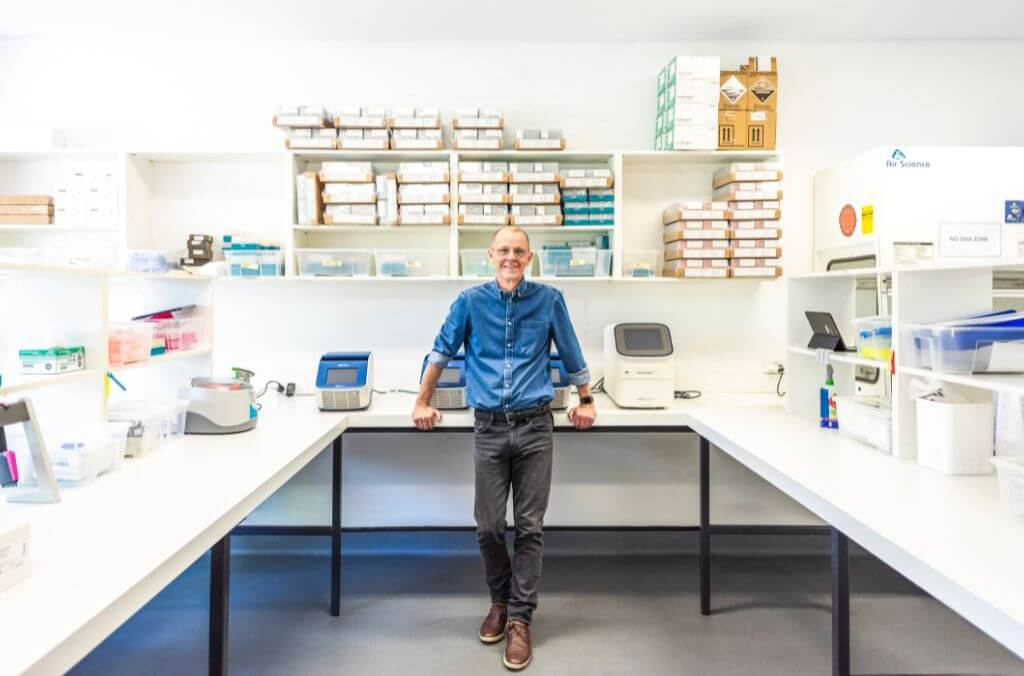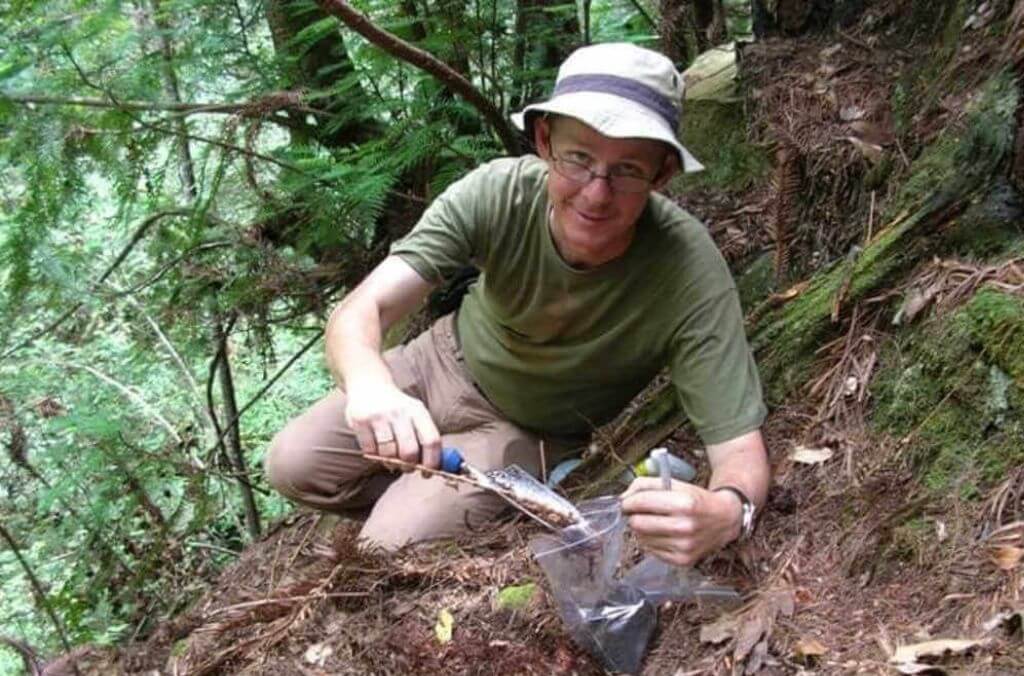Chief Scientist recognised in Australia Day Honours
Professor Brett Summerell has been recognised in the Australia Day 2024 Honours List for his significant service to the environment.

Australia Day Honours
Botanic Gardens of Sydney's Chief Scientist, Professor Brett Summerell, has today received a Member of the Order of Australia (AM) for his significant service to the environment through plant pathology and mycology.
Professor Summerell has been performing vital scientific research for 35 years at the Gardens, describing over 120 new species of fungi and publishing over 150 journal articles, books and book chapters.
For the past two decades he has also led over 100 scientists, students, volunteers and support staff while helping to establish vital scientific facilities such as PlantClinic, the Australian PlantBank and the National Herbarium of New South Wales.

Prof. Brett Summerell has been honoured for contributions to conserving plants and all life that depends on them.
The power of plants
Professor Summerell was grateful to see the important work his team does to protect and promote plants acknowledged on the national stage.
“This honour is not just a recognition of my work but of all the people I work with to protect Australia’s unique plant life from extinction,” Professor Summerell said.
“I hope this recognition will inspire more people to discover the power of plants and the inherent value they provide to our everyday lives.
"Plants sometimes get neglected in the grand scheme of the environment, but if we are going to combat the issues of climate change and biodiversity loss, we have to start with saving plants first,” he said.
Prof. Brett Summerell at the Sydney Tropical Centre (now The Calyx) in 1994 implementing biological control programs to control insect pests affecting the living collection.
A career fuelled by a fascination for fungi
A self-proclaimed “plant person”, Professor Summerell has been fascinated by fungi and plants his entire life.
His passion and enthusiasm for the natural world is why he chose to study a Bachelor of Agricultural Science at the University of Sydney in 1985 - where he also won the University Medal as the top ranked student in that year.
In 1988 he received his PhD at the University of Sydney and one year later in 1989, Brett began his career at the Royal Botanic Garden Sydney as a Plant Pathologist - researching and understanding fungi that cause diseases in Australian plants.
Since 1994, Brett and his team have played an important role in protecting the Wollemi Pine against invasive pathogens, which threaten its existence. His team have collected seed and cuttings from the only known wild population and through analysis of its genome, developed techniques to help bring this ancient species back from the brink of extinction.

Prof. Brett Summerell at the secret Wollemi Pine site in Wollemi Pine National Park collecting soil samples to test for the presence of the deadly Phytophthora disease in 2004.
Champion of conservation
Professor Summerell is now considered one of the world's leading experts on the deadly Fusarium pathogen, which can wreak havoc on our food crops and native plants.
His expertise is often called upon by journalists and he was featured in more than 150 news stories in 2023.
He is also a senior scientific advisor to government and industry bodies and is mentoring and inspiring the next generation of plant scientists.
Brett celebrated his highly respected accolade with his mother Patricia, who shares her birthday with Australia Day, and with the rest of his family.
Prof. Summerell regularly appears in the Garden’s What the Flora!? series to educate people about the Gardens’ vital scientific work. Check out the episode below and subscribe to the Gardens’ YouTube channel.